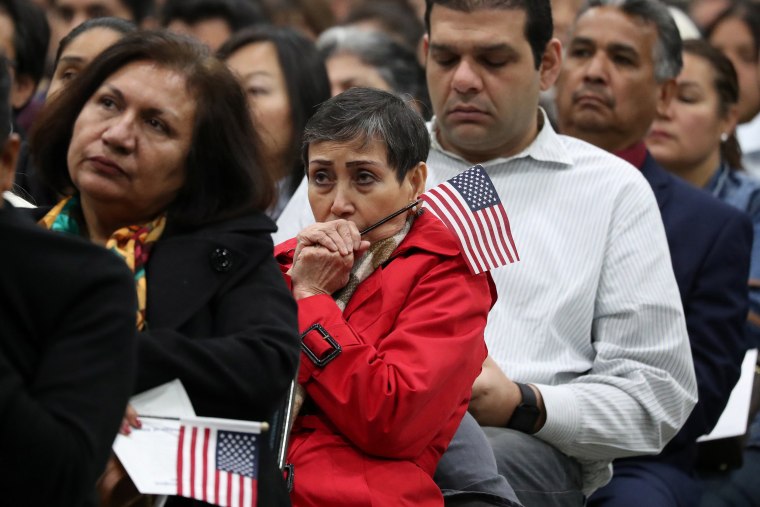Families who have at least one member without a green card are fearful of using public benefit programs because of a Trump immigration policy, creating concern they may also avoid publicly available coronavirus testing and treatment.
The Urban Institute study found persistence of the chilling effect caused by the Trump administration’s public charge rule that expands the criteria for denying legal permanent residence applications based on past or potential use of government benefit programs.
Among adults in households most likely to be directly affected by the rule — those with at least one family member who was not a legal permanent resident — 31 percent reported avoiding benefit programs in 2019, compared to 21.8 percent in 2018.
The rule went into effect in February 2020, but early versions of it were leaked to the public, creating fear and confusion among mostly Latino immigrant families. Some dropped food stamps and assistance for young children and pregnant mothers, including health care, even though they or their children were eligible, as NBC News reported last year.
“That chilling effects observed in 2018 among immigrant families persisted into 2019 — and increased among families most likely to be affected by the public charge rule — is alarming in the unprecedented context of the COVID-19 pandemic,” the study’s authors stated. “Many worry that immigrant families may be afraid to enroll in public programs that expand access to medical testing and treatment for COVID-19, putting into sharp relief the public health risks of these chilling effects.”
More than one in seven adults in immigrant families, or 15.6 percent, said they or a family member avoided a non-cash government benefit program, such as Medicaid or Children’s Health Insurance Program (CHIP), Supplemental Nutrition Assistance Program (SNAP), also known as food stamps, or housing subsidies last year for fear of risking approval for legal permanent residence, or what is known as a green card, according to the study.
The fear was more severe among low-income immigrant families, where more than a quarter, 26.2 percent, reported not using assistance programs for which they were eligible because of the chilling effect of the Trump policy.
Nearly half of adults in immigrant families who said they avoided using programs avoided the food stamp program, SNAP. Forty-five percent avoided Medicaid or CHIP and 35.2 percent avoided housing subsidies.
The researchers noted that about one in four adults in the families reported avoiding a program not named in the public charge rule, including free or reduce-cost medical care for the uninsured, Women Infant and Children assistance; health insurance purchased through marketplaces and free or reduced-price school lunches.
Although about two-thirds were aware of the public charge rule and most were confident they understood it, just 22.7 percent knew it does not apply to citizenship applications and only 19.1 percent knew children’s enrollment in Medicaid would not be considered in assessing whether green card applicants used public benefits.
The institute surveyed 1,747 non-elderly adults who were born outside the U.S. or who live with one or more foreign born family member.
Follow NBC Latino on Facebook, Twitter and Instagram.



